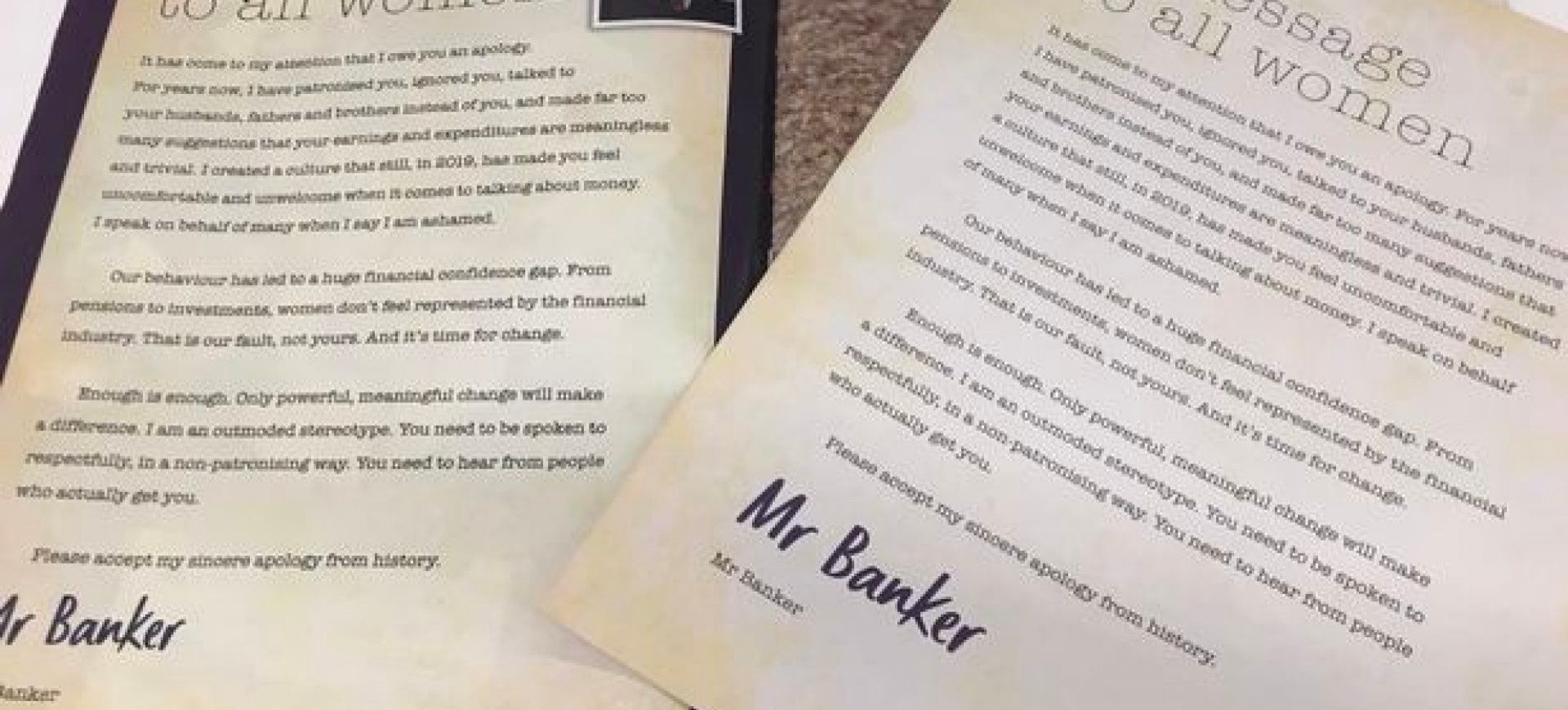2nd Jul 2019

2nd Jul 2019
Advertising Standards Agency (ASA) chief executive Guy Parker goes as far to say that the portrayal of our genders in adverts can affect us long term and limit us to what we can achieve - life imitates art as they say. I don't know if this is true, but you can see these stereotypes everywhere. The 2007 Aptamil advert is a prime example. It showed baby boys growing up to be mathematicians or hikers, and baby girls becoming ballerinas. Now, this isn't to say men can't work in these roles and women can't be dancers, but it still relies on the automatic assumption of what the two genders are destined to do.
Typically, it looks like a sexist advert is always at a woman's expense. Google 'sexist ads' and 99% of them are towards women. There are multiple blog posts and news articles dedicated to it. And you can't blame them - there is an extensive list of sexist examples to choose from. Even from within the past decade.
Example no.1 - the Year 8 boys' favourite and the choice Christmas gift from your Nan, Lynx. Those adverts of women crawling on their hands and knees to men because of their Africa body spray won't be around anymore. Ultimately, Lynx knew their audience were teenage boys, and so geared all of their advertising towards their sexist banter and fantasies - crowds of supermodels vying for the affection of your average man.
However, they are starting to change - Lynx's 'Is it ok for guys…' campaign challenged society's perception of what it means to be a man, highlighting pressures whilst still relating to their audience in a more meaningful way, moving away from portrayals of half-naked women.
The new law comes in a time of social media and everyone having the opportunity to voice their opinion - it's a very hard job to create something that pleases every single person. Even those with the best intentions sometimes face the wrath of those displeased on Twitter. NatWest and their 'Mr Banker' ad campaign was created in an attempt to make banking easier for women and apologies for their sexist language in the past. Instead, it was labelled 'patronising,' 'tone-deaf,' and 'mansplaining' banking. Some apology.
Like NatWest, the new wave of 'feminist' advertising (Exhibit A: BrewDog), can come under fire. In an attempt to recognise the gender pay gap, BrewDog (of all companies) created a beer that was to be sold at a fifth of the price of their usual Punk IPA, and only sold to women. Also in an attempt to highlight the 'lazy' efforts made by ad agencies when aiming a product towards women, it was packaged in a pink label and renamed Pink IPA. I think personally, it was a pretty clever idea, but the execution wasn't the best. It was probably a little too subtle and needed too much explaining, as the majority of people had a similar attitude towards this as they did NatWest - many called it a 'cynical marketing stunt.' It also resulted in a man suing BrewDog as he was refused the beer. Ouch.
But what about the men?
This isn't a one-sided issue - men are subjected to stereotypes just as much as women, whether that be über-macho or completely inept. Like the female stereotypes, men are often represented in the home. However, unlike women, men are seen to be lazy and don't have that much involvement in family life, drinking in the corner while mum does everything. The 2012 Asda Christmas advert exemplifies this - the mum is running around, making sure everything is perfect for Christmas, while the dad is either pretty passive about the whole thing or completely absent in places. Even the tagline dismisses the man's role at Christmas. There's plenty of men out there that bloody love Christmas and want to get involved with every opportunity. It's slightly unfair to only single out the mother's role in the whole build-up and celebration of the season. Men aren't lazy and the vast majority of them are good dads. So why present them in this light?
Again, Huggies' 'Dad Test' presented a similar sort of portrayal. I'm pretty sure most dads can change a nappy, which is why many found the Huggies advert baffling - the men presented seemed to lack the basic parental skills, and were pretty indifferent about the whole thing. Many were infuriated with the name of the campaign, claiming that parenthood isn't a trivial matter that can be awarded via a test - dads are capable of being left alone with their child, with no harm done due to ineptness. It all led to one American dad launching an online campaign against the advert, with the strapline, "we're dads, Huggies. Not dummies."
The law itself has loopholes, so I don't think that there is going to be a massive change. An advert that depicts a man or woman failing to achieve a task just because of their gender, or mum cleaning up after the kids while dad has his feet up, or deliberately pointing out the difference in the two genders' stereotypical attributes are all banned under the new guidelines.
However, ads that only feature one gender for a gender-specific product, or show women shopping and men doing DIY for example, would be exempt. It's hard to wrap your head round (and an utter minefield if you're in advertising) what constitutes as 'perfectly fine' under the law. So stand by for more examples of advertisers trying their best, but ultimately falling foul of the new rules.
Ultimately, it's a step in the right direction, and I'll look forward to seeing if there is a real change.